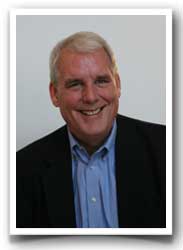Performance Management Boston
Performance Management does not work with today’s talented employees. Performance management is the surest way to turn off a talented millennial, not to mention Generation Z who are just entering the workforce. Unfortunately, traditional command and control management is the only way most managers know how to do their job.
Several years ago I noticed that coaching was a top culture request from employees at organizations of all sizes that I worked with. As the millennial generation becomes an increasingly important part of the workforce, the desire to be coached and developed continues to be a top need. That’s why I created Coach2Lead. Coach2Lead has helped many organizations, from Fortune 100 to smaller businesses, change their culture for the better.
Performance management in Boston is experiencing a revolution.
Performance management has been under much scrutiny over the last few years. More and more experts are saying that it has to change and evolve with the workforce.
A Managing Director of Accenture Business Services Called Performance Coaching with Coach2Lead “Life-Changing”.
“Coaching is the single most impactful leadership skill I have ever learned. I wish I had learned this 30 years ago!”
In 2016, Harvard Business Review (HBR) published an article on the revolution of performance management. Written by Peter Cappelli and Anna Tavis, the tagline was “The focus is shifting from accountability to learning.“
Performance management has been around for decades, and in those years the job force has undergone immense changes in its workforce. The Millenial culture is much different than its predecessors who created the performance management systems in place today.
It makes sense that as the workforce changes, so should management.
Performance management in Boston does not work with today’s talented employees.
Millennials value professional development and career growth. So why do so many organizations fail to engage these employees?
Over the years, I’ve spoken with many senior leaders and managers who have expressed frustration in their attempts to maximize the performance of their youngest employees. My advice is always the same: Don’t use performance management with Millennials in an attempt to motivate them. Instead, use performance coaching to develop them.
Performance management in Boston is typically about telling people what they should and should not do.
Performance management stifles creative thought and innovation.
Performance Coaching has long been known to be one of the best ways to develop people. In fact, coaching by definition is about listening and asking questions to develop people to find their own best answer to workplace challenges.
Unfortunately, only about 10-15% of leaders and managers have been taught the skill of performance coaching, which means that the vast majority of bosses simply do not know how to develop their people. Instead, they resort to telling people how to solve problems rather than helping workers develop their thinking and approaches to solve their own dilemmas.
Solving the #1 problem facing organizations that use performance management in Boston today.
 Closing the distance between the millennial opportunity and the current engagement gap will only happen when senior leaders coach and develop their teams and hold their teams accountable for coaching and developing their people.
Closing the distance between the millennial opportunity and the current engagement gap will only happen when senior leaders coach and develop their teams and hold their teams accountable for coaching and developing their people.
When this happens, you can create a culture of coaching that is not only engaging to Millennials but also more satisfying for their Gen X and Baby Boomer bosses. This is the reason it is so important to focus on helping managers become leaders by learning how to coach.
Performance coaching is not a difficult skill to learn. However, it is a leadership skill that must be developed and practiced if your goal is to have an engaged workforce. With Millennials now making up the majority of the global workforce, taking a coach approach to leading and developing your people has never been more important.
Switch from performance management to Performance Coaching in Boston with Coach2Lead.
Coach2Lead uses a blended learning approach for lasting behavior change, and Coach2Lead can be completed in as little as 2 hours per week over 12 weeks. You can expect:
- Go from disengaged employees to employees who love their jobs.
- Go from low productivity to engaged employees who love learning and achieving their goals.
- Go from frustrating experiences with your employees to looking forward to your engagements with individuals and teams.
- Go from dreading difficult conversations to engaging in meaningful conversations.
From performance management to performance coaching in Boston
Performance coaching is actually more natural and easy than performance management. According to an article in Human Resources Today: “…the best employee coaching activities are the interactions that don’t look like coaching at all“. Performance coaching is not difficult to learn as it’s inherently the best way to communicate. It’s about learning to ask questions and listen in your conversations.
Leaders who use performance coaching to develop their people achieve up to 3 times the business results. A manager’s inability to coach has been called the #1 problem facing organizations today.

Tom Rausch
Tom Rausch is a certified executive coach and culture consultant and the driving force behind Coach2Lead.
Several years ago Tom noticed that coaching was a top culture request from employees at organizations of all sizes. As the millennial generation becomes an increasingly important part of the workforce, the desired to be coached and developed will continue to be a top need. This realization drove the creation of Coach2Lead.



Leave A Comment